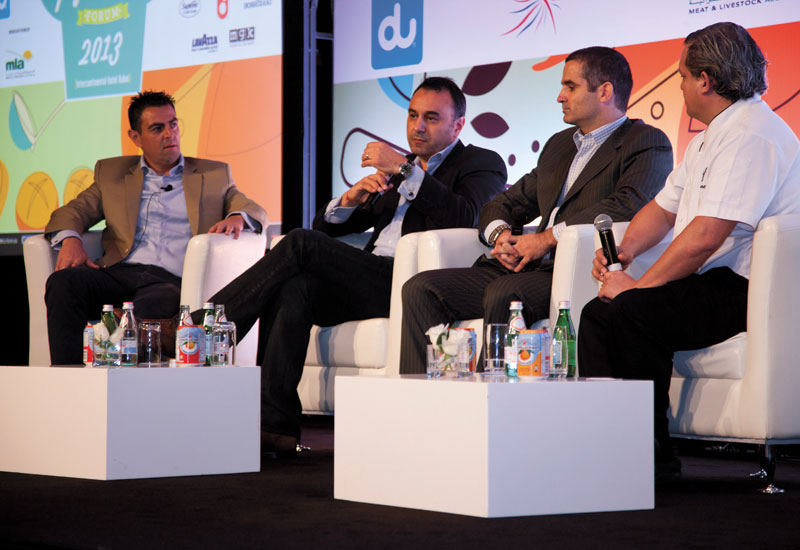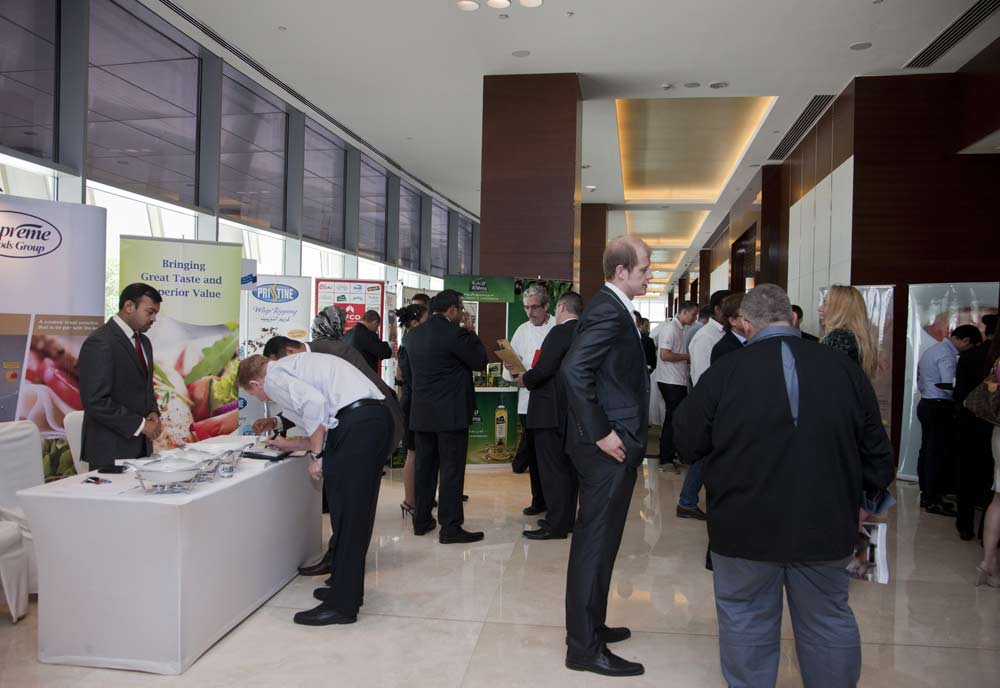 Delegates debate the importance of training in F&B at the Caterer Middle East Chef & Ingredients Forum.
Delegates debate the importance of training in F&B at the Caterer Middle East Chef & Ingredients Forum.
Over 150 food and beverage professionals from across the Middle East’s respected restaurants gathered to attend the second annual Caterer Middle East Chef & Ingredients Forum.
A host of panel discussions and workshops comprised the event where experts passionately discussed the state of the industry, and how important ingredients are for a chef to whip up a storm.
QUALITY MATTERS
The first panel session entitled ‘A Taste for Quality’ was moderated by Gates Hospitality CEO Naim Maadad. He was joined on stage by Christian Gradnitzer, group culinary director, Jumeirah Hotels & Resorts; Michel Jost, executive chef, Yas Viceroy Abu Dhabi; Cladys Magagna, executive chef, Fairmont Bab Al Bahr; Tomas Reger, chef for hire; and Amrish Sood, speciality chef, Rang Mahal.

| Advertisement |
“The food component is losing its edge,” said Maadad to start off the conversation. Gradnitzer said he thought 2014 will bring stabilisation in the industry. “What I strongly believe is people creating consistency behind their brands, and that consistency will lead them to create destinations which create credibility to create a customer base that is loyal,” he added.
Jost said: “Most brands are growing very fast and guests are loyal. It means on a training level there is a great foundation. Once you have a training culture, you can attract the kind of people who are aligned to what you want to deliver.”
Magagna said the ‘farm-to-table’ trend has a very strong impact on the customer. “Another trend is the gluten free. Ten years ago, we did not have any option or it was just for celiacs. It’s a new way to dine so we need to consider that,” he explained.
When talking about whether diners cared about the food or the overall experience, Gradnitzer from Jumeirah reminded the panel that “the magic of every restaurant is the atmosphere it creates — food is not always the first priority”.
Jost agreed and said: “The guest experience is only going to be wow if every team member understands they have a role to play.”
But where does food sit in with all of this, wondered Maadad. Reger said that ingredients should be the first thing on a chef’s list. “I don’t think casual places should have worse ingredients than high end places. The way you put them together is what makes it more elaborate.” Sood said that ‘farm to table’ is not a trend for him, rather a message to communicate to diners.
There is a lot of love from the panel for international casual brands, with many admitting that they frequent them regularly, and held up the success of The Cheesecake Factory as an example for the market.
THE CHEFS STRIKE BACK
The next panel moderated by Ultra Brasserie executive chef Emily Herbert was called ‘Food Wars’. Her panellists included Okku executive chef Hugh Sato; Capital Club executive chef Cyrille Troesch; chef-for-hire Paul Frangie; The Act Dubai head chef Roberto Segura Gonzales.
Troesch admitted there is a lot of confusion on the market with organic food, and it is the chefs’ responsibility to educate. However, organic food won’t be able to drive the market because it is not yet daily available and too expensive; it is priced at around 65% cost at his outlet. “Now how many will accept a cost like this?” He further pointed out that Dubai doesn’t have the right costs for organic food on a daily basis right now.
Frangie said for the short-term, locally sourced, medium-sourced sustainable, and in the future organic products is the aim.









 Search our database of more than 2,700 industry companies
Search our database of more than 2,700 industry companies









